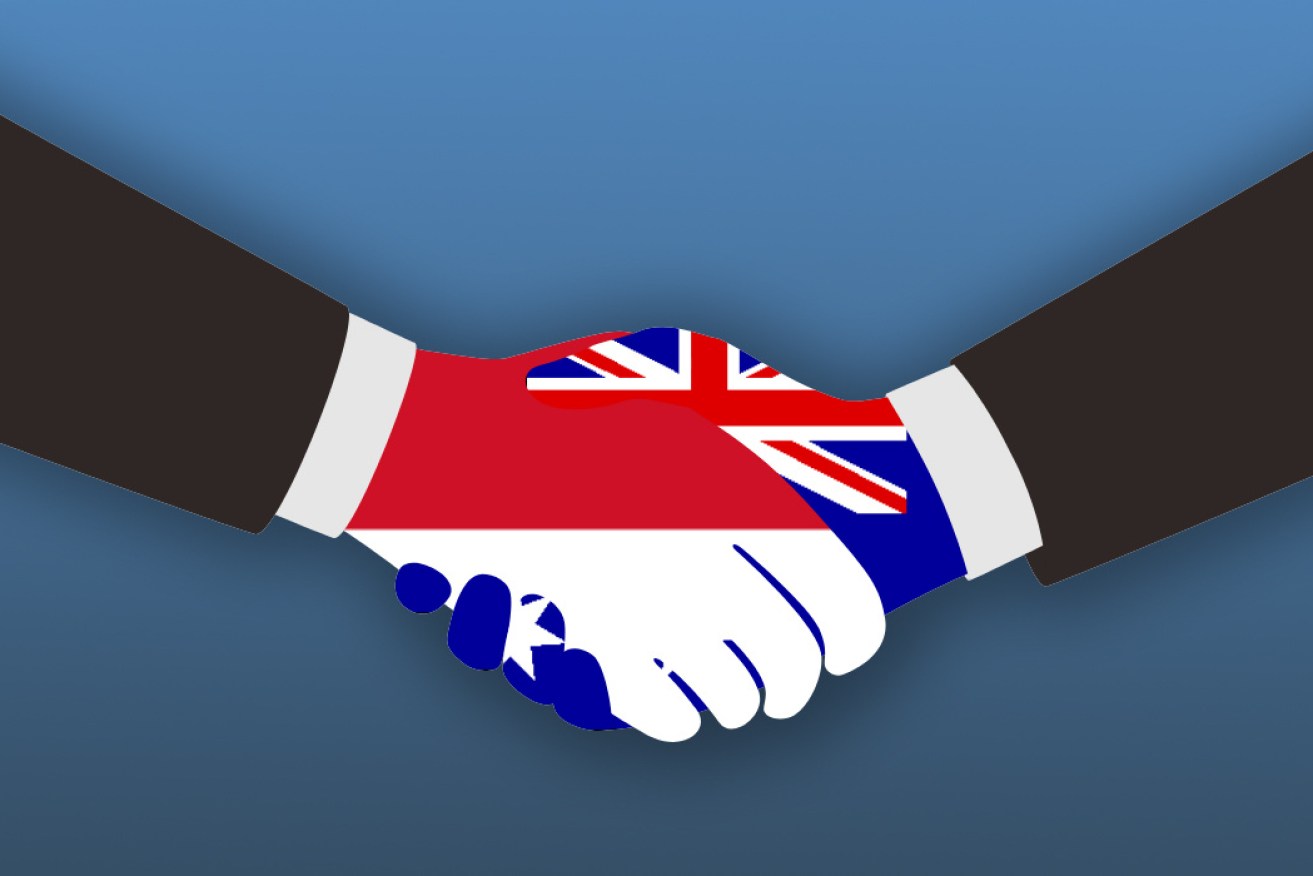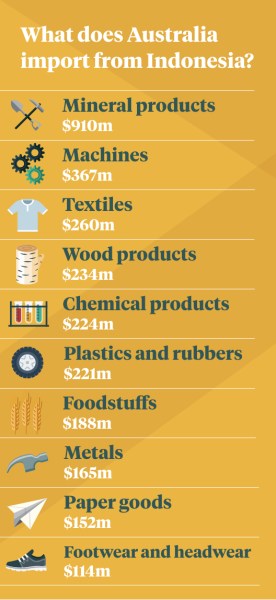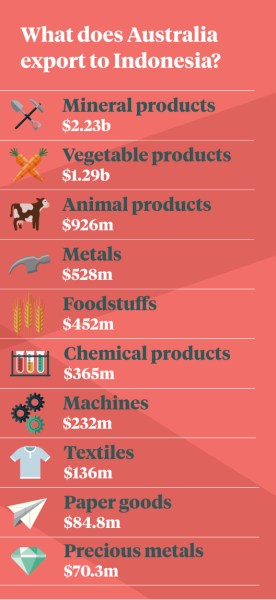A look at Australia’s freshly signed trade agreement with Indonesia


Indonesia and Australia have signed a new free trade agreement after eight years of negotiations.
After roughly eight years of negotiations Australia has finally signed a new trade deal with traditionally protectionist Indonesia, marking a positive step in developing the otherwise ‘undercooked’ relationship between the two G20 nations.
The Indonesia-Australia Comprehensive Economic Partnership Agreement (IA CEPA) was signed by Trade Minister Simon Birmingham and his Indonesian counterpart Enggartiasto Lukita in Jakarta on Monday, and will see tariffs placed on a multitude of exported Australian goods either lowered significantly, or removed entirely.
Tweet from @Birmo
“This is an agreement that will provide deep strengthening of the strategic ties between Australia and Indonesia,” Mr Birmingham said in a doorstop interview on Saturday, before flying to Indonesia to sign the agreement.
He said it was a “win-win agreement”.
“This agreement is going to provide more opportunities for Australia’s grain growers, horticulturalists, cattle producers, our education providers, health and financial services sectors,” Mr Birmingham said.
He added it would help Indonesia’s tourism industry by attracting more investment while ensuring it could upskill its workforce.
What the as-yet-unratified deal would actually mean for Australians is not so straightforward, however, so The New Daily decided to break it down.
Indonesia’s trade profile
Indonesia has a GDP of almost $1.5 trillion, placing it 16th globally for the size of its economy.
But despite its size and close proximity to Australia, the economic relationship between the two countries remains small.

Indonesia and Australia’s trade relationship is relatively small. Source: Department of Foreign Affairs and Trade.
Colin Brown, adjunct professor with Griffith University’s Asia Institute, said the two nations have had an “on-again, off-again” relationship for the past 70 years, and economic ties have been “undercooked” as a result.
“It’s a cliche, but there aren’t too many countries as close geographically but as distant in every other sense – culturally, politically and economically,” he said.
“We’re about each others 11th or 12th largest trading market, and that’s not very substantial given our proximity and the size of the two economies.”
Moreover, Indonesia’s typical protectionist stance on trade means “they basically don’t get into free trade agreements”, making the IA CEPA a net positive, adjunct professor Brown said.
What it means for Australia
Australian exporters of products like beef and vegetables will be the first to reap any benefit from the deal, according to the Lowy Institute’s Southeast Asia Project director, Ben Bland.
Mr Bland said the biggest potential opportunity for Australia over the long term, however, would be in increased investment into Indonesia in sectors like education, tourism and healthcare.
A greater proportion of Australian ownership in those industries would be permitted under the terms of the deal.
Eventually, Mr Bland said, the deal should create more job opportunities and better sales for farmers, but it will take time for those effects to filter down.


Similarly, adjunct professor Brown said beef exporters should be “very happy” the two countries have reached an agreement, but he doubted the IA CEPA would have a profound effect on the economy.
“I think symbolically it’s probably got a bigger impact than it’s going to have economically,” he said.
“I’m not saying it won’t have an impact economically, but I think we’re at risk of overstretching it.”
Part of the challenge is that companies looking to do business in Indonesia face a number of “significant problems” outside of the tariffs and other government-created barriers that would be lowered under the agreement.
Some of those challenges include inefficient transport infrastructure, issues with the availability of cold stores, and a lack of legal certainty on contracts and other agreements.
For the ordinary Australian, however, much of this is a moot point.
“I doubt they’ll notice the effects of the deal,” Mr Brown said.
“Most Australians don’t really look at the labels on their shirts, but they might see more shirts made in Indonesia coming into the market, maybe some light industrial imports.
“Overall, I think the likelihood of the average consumer being conscious of the impact of this policy over the next little bit is pretty remote.”








